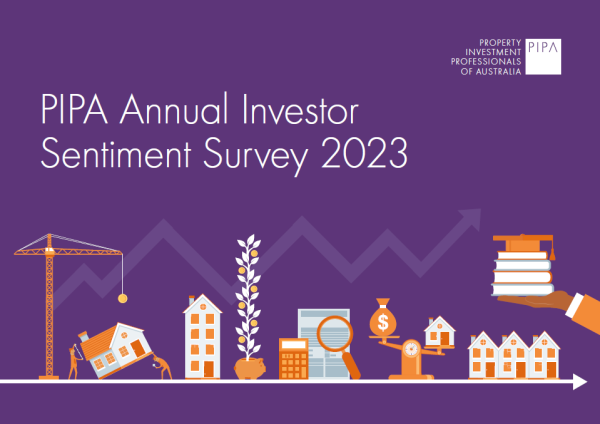How property managers can help with investor research
Nov 2020Karen Millers
Categories
Location ReportsMedia releasesNational market updatesPersonal advisersPIPA AdviserPIPA Annual Investor Sentiment SurveysPIPA Member ProfilesPIPA video updatesPIPA webinarsPodcastsProperty advisersProperty newsLatest Articles
Jordan van den Berg: The ‘Robin Hood’ TikToker taking on Australian landlords
Victorian property investors face yet another new property tax as council tests levy
Rentvesting in Australia: A deep dive
‘More chance of winning lotto’ than housing targets being met
There’s no question that property investors have become much more educated about what, and where, might make a savvy investment.
A significant change in investment strategy has also been the increase in interstate property purchases, so investors can benefit from market cycles in different locations.
Indeed, the 2020 PIPA Annual Investor Sentiment Survey found 41 per cent of investors were considering borderless investing – or buying outside of the state they live in – over the next year.
However, investing in a location that you probably don’t understand as well as you should present its own set of challenges that can prove costly to the uneducated.
A key element of every investor’s research should be developing a thorough understanding of the local rental market conditions of their prospective property investment.
In my experience, one of the best ways to do this is to speak with the local rental market experts – who are property managers.
Professional property managers have their fingers on the pulse of rental conditions in their local areas, so can be a valuable resource for investors.
Of course, successful property investment also requires having expert property managers on your team.
This means that gaining a better understanding of the local rental market could also be part of your research into potential property management selection.
Rental market insights
While there is a plethora of rental data that investors should become familiar with; property managers know what is happening right now in their local markets.
Whereas property metrics often reflect what happened a few months ago, property managers know the current market realities.
One key consideration for all investors is understanding the types of dwellings that are the most in-demand from tenants in a particular area.
Property managers know this market intelligence because they are processing lease applications every single day.
For example, in their area, they may receive a low number of applications for one-bedroom units, but half a dozen or more for three-bedroom houses because of the demographics of the types of renters in their area.
This intel can also include insights into the demand and supply ratio of particular dwelling types, such as a current oversupply of new units which can reduce rentability as well as cash flow. Property managers also understand which streets are the most popular with tenants, perhaps because they are close to amenities or transport infrastructure.
Conversely, they will also have an inkling of which streets are problematic and are best to be avoided by property investors.
A professional property manager can also suggest the potential market rent for a property as they will understand the likely demand from tenants.
All of these are reasons why interstate investors should speak with two or three local property managers to understand current market conditions – long before they buy an investment property.
This process will also enable them to assess the best property manager for their real estate asset after settlement.
Without professional property management, especially for interstate investors, it will be more difficult that it needs to be to hold an investment property for the long-term.
Because, whether they are buying near or far from home, the number one reason why some investors achieve more than others is they selected a solid asset that remained in demand with tenants for decades.
Isabella Shoard, Canstar Investor Hub, 13 November 2020
https://www.canstar.com.au/investor-hub/property-manager-research/




